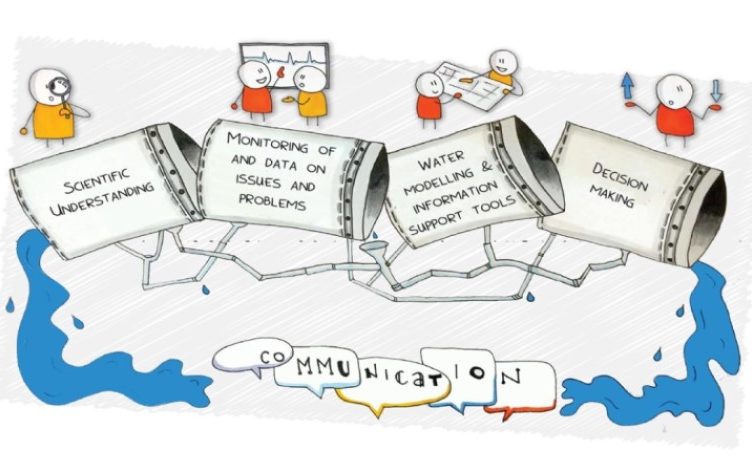
05/12/2024
Event Summary: Overview of water quality modelling projects from the Queensland Water Modelling Network with Callym Dunleavy
Read more
The inaugural Queensland Water Modelling (QWMN) Hack took place over two days in early July at the University of Southern Queensland's (USQ) Springfield Campus. Twenty professional and aspiring water modellers came together to form teams, generate ideas and tackle the QWMN Hack theme of ‘connecting and integrating water, energy and landscapes to create value for our communities’.
USQ’s Dr. Keith Pembleton was ‘Hacker in Chief’ at the event. He was supported by Dr Brian S. McIntosh and Dr Piet Filet of the QWMN External Engagement Program, as well as Lucia Gamarra and Elise Alley-Fermy from the International WaterCentre, along with a team of mentors from state government, local government and the water sector.
A hack is a new way of visualising, analysing, presenting or communicating data, models and processes. In the context of the Queensland Water Modelling Network, a hack is a novel way of conceptualising a model application, presenting model outputs to decision makers, combining data and models in a novel way or using a model to infer information that is not or cannot be directly measured. A hack is a low fidelity/prototype solution – the beginning of a solution. From this perspective, while a hack concept needs to be viable and robust, the hack itself does not need to be a fully functional product.
The QWMN Hack was an open innovation style of hack, where beyond the context and some live assistance to help create and winnow ideas, there were no more rules. The field was open to generate as wild an idea as possible, as long as it met the judging criteria.
The context of the hack challenge was as follows:
“The year is 2029. Queensland is in the grip of extreme climatic uncertainty, with severe drought in some areas and flooding in others. Despite these challenges, through a greater understanding of the connectedness and integration of water, energy and landscapes and their value for our communities, the state’s economy and communities are thriving in the face of this adversity. Your hack is something that you initiated in 2019 and which has underpinned this success.”
The QWMN Hack started off with scene setting presentations and discussions on water security (from SEQ Water), energy security (from Stanwell) and ecological security (from Healthy Land and Water). A short team building activity followed, then teams were left to form, with some prompting and as needed assistance from the Hack mentors.
After a few hours, teams had begun to form and ideas were flowing. The rest of the first day solidified the teams and ideas, which then progressed to adding details and designing prototypes. Day two saw the prototypes finished and the teams write their submission to the judging panel. They also created a short three minute film to effectively communicate their ideas.

The winning QWMN Hack team was Team Mirror – Israt Chowdhury and Phillip Chan, both from SEQ Water – who came up with an idea to bring together available data sets to enable new environmental services to citizens. You can learn more about their idea at the 2020 QWMN Forum.
The runners up were Team Alfa – Hamid Mirfenderesk, Ali Jafari and Nafis Hossain.
The most collaborative hacker award was won by Ina Asmussen.
The QWMN Hack organisers acknowledge and thank the following organisations and individuals for their support of the event. This event would not have been possible without their kind support.